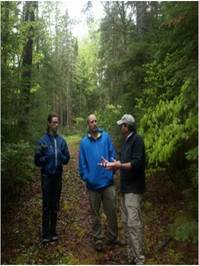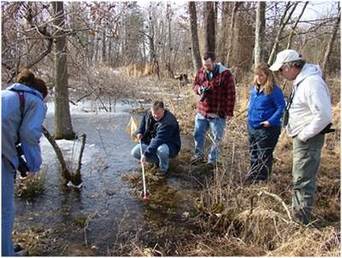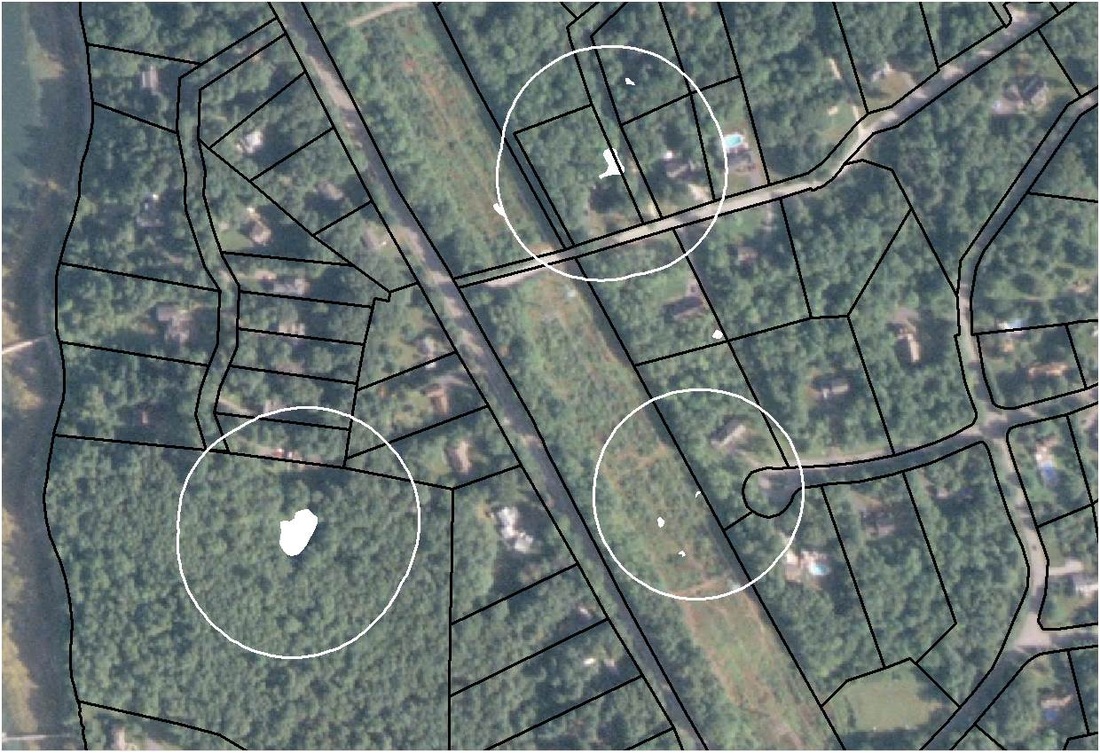 Kathleen P. Bell, Associate Professor, School of Economics, University of Maine
Kathleen P. Bell, Associate Professor, School of Economics, University of Maine
Jessica Balukas, Graduate Researcher, School of Economics, University of Maine
Landowners are vital to vernal pool conservation efforts in urbanizing, private landscapes. In this setting, landowners often bear the costs of pool conservation. Interestingly (at least from a social science perspective) landowners vary in terms of their willingness to change or maintain behaviors or plans to conserve pools and the vital ecosystem services they provide society at large.
Fascinatingly, landowners in urban and rural areas are both interested in future development and conservation. Even with large financial benefits from development, some owners decide to keep properties intact with limited development. For some, this may be a desire to pass the land on “as is” to their children. Conversely, even with small returns from development, some owners decide to pursue development options. Real-estate is a key financial asset for many individuals. Lastly, many owners exhibit preferences for both development and conservation. Using survey responses provided by local land owners, we are learning more about these different groupings of landowners. The cumulative decisions of many owners will influence future landscapes and pool conservation outcomes.
As we look at development and conservation preferences, we are specifically focused on evaluating the costs of pool conservation for different land owners. In addition to variation among landowner perceptions of these costs, land characteristics and placement of vernal pools can influence development options and therefore the costs of pool conservation greatly. A large land parcel with a vernal pool in the corner will likely have many development possibilities that can easily incorporate vernal pool protection. In contrast, a small parcel with a vernal pool in the center has fewer development possibilities without degrading the integrity of the vernal pool. As we study broadly how owners balance different objectives, these specifics help us better understand how owners might react to different pool conservation opportunities.
As pool conservation strategies advance we can benefit from improved, coupled knowledge of both human and natural systems. Understanding how landowner decision-making varies across individual landowners and landscape settings could improve conservation policy development and implementation by helping policy-makers better integrate landowner perspectives into conservation efforts.


